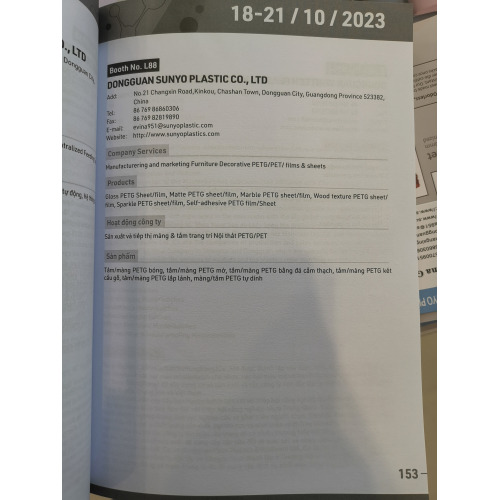In general, food packaging sheets are made by a T-die extrusion technology. The specific process is: the material is melted and homogenized in an extruder to form a molten material; subsequently, the molten material is passed through gears. The pump is fed into the T-die to make a film; the film is cooled and set in a calender (or stacking roll), and the sizing and surface treatment are completed at the same time; the traction device pulls the sheet and is finally completed by the winder. Winding (as shown in Figure 1). The resulting sheet is thermoformed to produce a variety of food packaging articles such as trays, boxes, containers, etc., and then cut into individual pieces via a special cutting device, and the resulting pieces are produced in this process. Material waste is broken into pieces for recycling. (1 for the extruder, 2 for the gear pump, 3 for the T-die, 4 for the calender, 5 for the winder)
It can be seen that when the above extrusion line is used for production, the sheets are obtained by extrusion molding a plastic raw material such as PP, PET or PS. However, we know that in accordance with the requirements of the EU's safety and health standards, the plastic raw materials used in food packaging must be 100% new material, that is, the use of recycled materials is not allowed. Even wastes that are clean or free of any contamination, such as those produced during the thermoforming process described above, are not allowed to be used. At this time, the problem arises: How to deal with these wastes that need to be returned to the waste recycling system or repelletized? Because, for the extrusion manufacturers, the amount of waste generated is very large, sometimes accounting for about 1/2 of the total amount of raw materials used. If these wastes cannot be recycled, the production costs of the products are virtually increased. Solution: Coextrusion
The introduction of coextrusion technology has solved these problems well. When the technique is used to extrude a sheet having a multi-layered structure, the recycled material is usually extruded as an intermediate layer, while the new material is extruded as an outer layer, making secondary use of the recycled material possible.
This process is unique in that it uses a dispensing head (feed block) with a special structure. The dispensing head is connected to the extruder for extruding the layers of the sheet via a neck connection. In this way, the extruded molten material is conveyed directly into the dispensing head through the connection angle neck. The internal distribution of the distribution head has different chamber flow path structures, each of which is directed to a different extrusion layer where the molten material will be distributed to the designated layer structure.
The most common co-extruded sheet is a three-layer structure, namely an ABA structure (an outer layer made by extruding 100% of new material, and an intermediate layer made of recycled scrap material). The coextruded extruder production line (shown in Figure 2) consists of two extruders, one for the extrusion layer and the other for the extrusion layer. Obviously, this technology significantly reduces the cost of the final product. Environmental advantages: Recycling and reducing scrap
PET materials have been widely used in the field of food packaging due to its superior comprehensive properties unmatched by other plastic materials, such as more transparency, higher mechanical strength and yield characteristics, and better barrier properties, especially in the field of soft drink packaging. . However, the huge market consumption makes it necessary to recycle the bottles.
Co-extrusion technology can be used to co-extrude the chips recovered from discarded PET bottles and reuse them instead of discarding them directly. This reduces costs and achieves environmental protection.
New Generation Twin Screw Extruder: Energy Saving
As we all know, PET is a kind of hygroscopic material and it is easy to absorb moisture in the atmosphere. For the extrusion process, this material tends to undergo a hydrolysis reaction that severely affects the mechanical properties of the extruded sheet. Therefore, in the conventional extrusion process, a corresponding drying device is added to dry the material. This process tends to consume a lot of energy. In general, during the entire extrusion process of the PET sheet, the energy consumed for drying the raw materials accounts for about 40% of the total energy consumption.
AMUT Italy introduced advanced twin-screw extrusion technology (as shown in Figure 3) into its co-extrusion extrusion line to completely eliminate the drying step. The moisture generated during the extrusion is discharged through the vacuum device on the extruder, which effectively avoids the possibility of hydrolysis of the material, allowing users to obtain high-quality PET sheet without using a drying system.
1. This article is edited and reproduced by this site. It does not mean that this site agrees with its views and is responsible for its authenticity.
2. If this article involves the content of its works, copyright and other issues, please contact us within 30 days and we will deal with it accordingly.




